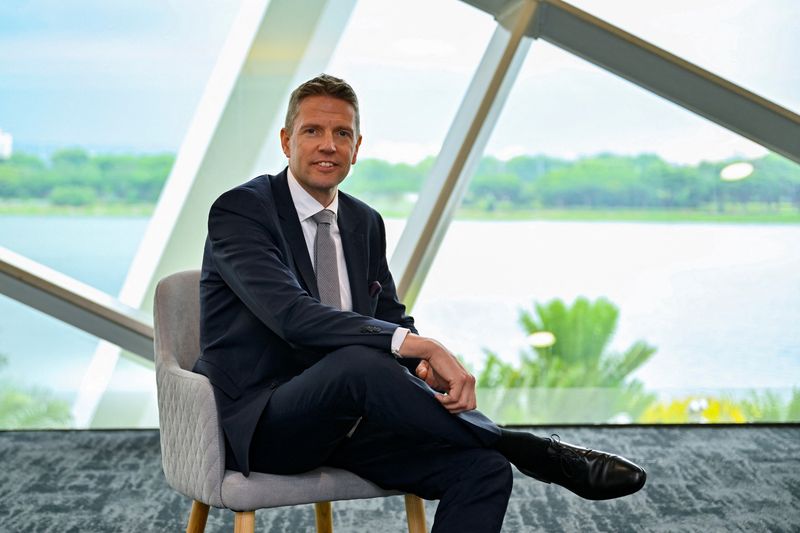(This May 17 story has been corrected to say Marathon Petroleum, not Marathon Oil (NYSE:MRO), in paragraph 8)
By Trixie Yap and Florence Tan
SINGAPORE (Reuters) - Finnish refiner Neste expects renewable fuels from its new facilities in Singapore and the U.S. to drive its growth this year despite expectations of lower oil product margins in the second quarter, its chief executive said on Wednesday.
"The macroeconomic situation is something that is affecting many businesses," Matti Lehmus said in an interview.
"We, for example, also highlighted that in our oil products business, we would expect the refining and margin environment in the second quarter to be clearly lower than in the first quarter," he added.
However, the company has opened a second 1.3 million tonne-per-year (tpy) renewable fuels plant in Singapore, bringing total capacity of sustainable aviation fuel (SAF) to 1 million tpy at the site.
"For Neste, it is a year of growth. We are just starting up our expansion here in Singapore," Lehmus said.
The Singapore plant is ramping up production after it was started up in mid-April, said Lehmus.
"It will take several quarters for it to come to 100% (nameplate) production."
Neste will also start up the second and third phases of its U.S. renewable diesel joint venture with Marathon Petroleum Corp (NYSE:MPC) in autumn that will include a feedstock pre-treatment unit, Lehmus said.
In Singapore, Neste said on Wednesday it was buying a stake in a fuel storage and infrastructure joint venture at Singapore's Changi Airport for SAF blending and supply to airplanes.
Neste has also previously supplied SAF to a number of airports in Japan and New Zealand, Lehmus said.
Neste produces renewable fuels, mainly from waste and residues such as used cooking oil and animal fat from food industry waste.
The company expects waste and residues to account for over 90% of its feedstock for the foreseeable future, Lehmus said, while it continues to research new ones such as algae and hydrogen.
Sourcing for sustainable raw materials is a major challenge faced by biofuels producers.
Separately, Neste expects to make a final investment decision on its green hydrogen project at its Porvoo refinery in Finland in early 2024. If it goes ahead, production of the renewable fuel could start in 2026 and be primarily used in its refinery’s processes, replacing fuel produced from fossil feedstocks, the company said.

"Longer term, if the availability of green hydrogen can be scaled up, it offers then the possibility to also further convert green hydrogen into fuels or chemicals," added Lehmus.
The production of synthetic fuels from green hydrogen and carbon dioxide hasn't been commercialised and is costly.